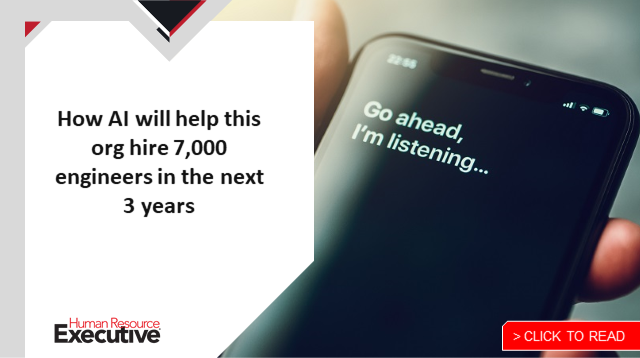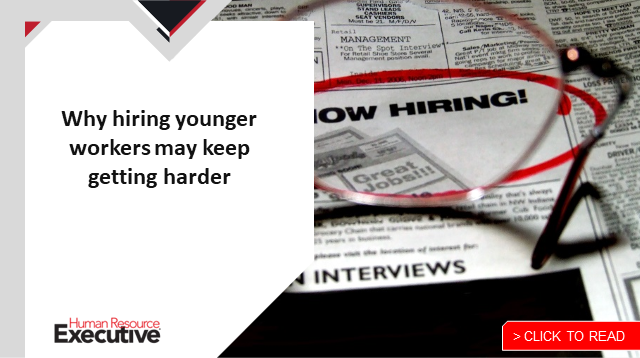I’ve had many conversations with business and HR leaders about the economy in the last few weeks, and many are worried about a downturn. I just don’t see it happening.
Today’s job numbers were pretty impressive. The U.S. unemployment rate remains at 3.6%, 372,000 jobs were created, and forward-looking segments like professional services, research and management all grew. And of course, companies are hiring in transportation, leisure and hospitality.
As the Wall Street Journal wrote earlier this week, if the United States is in a recession, it’s a pretty strange one. Rather, I’d suggest something else is going on.
We’ve had almost 14 years of near-zero interest rates, encouraged by politicians who wanted the Fed to keep the economy growing. That enormous period of monetary growth let consumers and businesses buy, grow and acquire. Housing prices, asset prices and the stock market all went up—largely because there was nothing else to do with our money.
Today, as the Fed tightens interest rates, we’re moving back to what I’d call a “normal economy.” Normal means that the cost of money is measurable, and you as an investor or business person can evaluate buying a stock, a bond or an asset depending on its return. When one of these assets has zero return, people start doing crazy things. (Buying crypto, for example.)
 Our discussions with hundreds of HR leaders point this out. Nobody has stopped worrying about hiring at all. Talent acquisition budgets remain robust and nearly every company we talk with is trying to improve mental health, benefits and employee experience to hold on to the people they have.
Our discussions with hundreds of HR leaders point this out. Nobody has stopped worrying about hiring at all. Talent acquisition budgets remain robust and nearly every company we talk with is trying to improve mental health, benefits and employee experience to hold on to the people they have.
(The whole focus of my new book, Irresistible, by the way, is explaining how to do this at scale.)
As we discuss in our newest research, what’s really going on is a very constructive redefinition of industries. Companies are morphing from one business to another, trying to hire, skill and adapt their jobs for change.
Oil and chemical companies, for example, are getting into battery technology, hydrogen and solar energy. Banks are getting into digital currencies, digital commerce, payments and cyber security. Retailers are not only fixing their supply chains, they are getting into healthcare and pharmacy. And healthcare companies are going through one of the biggest transformations of all: redesigning the way we receive clinical care.
In fact, we are preparing to launch our Global Workforce Intelligence research this fall, and you’ll be amazed at what we discovered. In our first two industry studies (healthcare and banking), the transformation taking place in work is pretty amazing. Companies are now implementing what we call “systemic HR solutions,” binding together the Four R’s: recruiting, retention, reskilling and redesign. As you’ll see later this year, this is a transformational new way to run a company, and it’s now happening nearly everywhere.
Yes, the economy is slowing down, but to me, that’s a good thing. We have been all making money and growing our businesses quite well (despite the pandemic). Now it’s time to be more measured, more discriminating and better at asset allocation.
 If there’s one thing I can say that’s happening, it’s that the role of human capital in the economy is continuing to rise. With job numbers like we see today, it’s clear that every company is now in the service business, and we now live in a human-capital-centric world. Industries like tech, financial services, professional services, entertainment, leisure, healthcare and even media are all people-centric industries. And I would suggest that energy and manufacturing are too.
If there’s one thing I can say that’s happening, it’s that the role of human capital in the economy is continuing to rise. With job numbers like we see today, it’s clear that every company is now in the service business, and we now live in a human-capital-centric world. Industries like tech, financial services, professional services, entertainment, leisure, healthcare and even media are all people-centric industries. And I would suggest that energy and manufacturing are too.
Yes, some over-hyped tech and crypto companies are laying people off. I think the economy is going through a healthy readjustment, we just have to watch how things go in the fall.
The post Josh Bersin: New jobs report doesn’t suggest a recession to me appeared first on HR Executive.